The COVID-19 pandemic that swept the world starting from early 2020 laid bare shortcomings in response to such a mass-scale incident. It exposed deep gaps in global coordination, unequal access to medical supplies and overstretched health systems.
The crisis highlighted vulnerabilities that the World Health Organization (WHO) and its members now aim to address through a new international pandemic accord adopted this week in Geneva.
On the sidelines of the World Health Assembly in Geneva, Health Minister Kemal Memişoğlu said his country had already implemented many of the accord’s key principles, from building domestic resilience to extending aid beyond its borders during the pandemic.
“Türkiye is, in fact, already a country that has implemented the pandemic protocol that the WHO and world countries decided on at the assembly,” Kemal Memişoğlu told Anadolu Agency (AA). “We already showed this during the pandemic. In fact, we not only helped our own citizens, but also provided all kinds of support, from devices to materials, to people in need in other countries.
“Hopefully, each country will now take this on as a duty, just as we did during the pandemic,” Memişoğlu added. “As a country that has already achieved this, we believe the agreement will be beneficial – and we hope the world won’t face another pandemic that puts humanity to the test.”
According to Memişoğlu, Türkiye’s COVID-19 response highlighted the strength of its health infrastructure and emergency systems. He said the country not only managed the crisis at home but also emerged as a provider of international aid – from exporting medical supplies to hosting foreign patients through health tourism.
“Our country, which has made great efforts in the past 20 years both in infrastructure and human resources, managed the major pandemic of COVID-19 successfully and was able to deliver health care not just in hospitals but also directly into people’s homes.”
On Tuesday, all 194 WHO member states formally adopted the first-ever pandemic accord, hailed as a milestone in global public health cooperation. The consensus decision at the 78th World Health Assembly follows more than three years of negotiations triggered by the stark inequities exposed during the COVID-19 crisis.
Before the agreement takes effect, countries will need to agree on a separate annex on sharing pathogenic information, a crucial step to ensure equitable access to materials during outbreaks. The treaty will be opened for signature and ratification once an agreement is reached on that system, expected within one to two years.
While fears of a potential future pandemic continue to shape global health policy, Memişoğlu also used the occasion to highlight what he called a humanitarian health emergency in Gaza – and said Türkiye is pushing to place it firmly on the WHO’s agenda.
“Today, unfortunately, in Palestine, in Gaza, people cannot access food, water or health care. We are experiencing a process where even hospitals are being destroyed,” he said.
Memişoğlu revealed that Türkiye is leading efforts within the WHO to produce an official report and declaration on Gaza’s health crisis, emphasizing the need for immediate international action. “Today, regarding Palestine, we are taking the lead for the WHO to prepare a report and take the necessary actions,” he said. “We are leading the WHO to prepare a declaration and report about Palestine.”
He described the situation in Gaza as not only a public health catastrophe, but a moral test for the international community. “It’s not just about Palestine. In fact, humanity itself is being threatened. And as humanity is being threatened, we are striving to ensure that institutions like the WHO, which are responsible for people’s health and right to life, do not remain indifferent,” he said. “We say the people of Gaza and Palestine need the humanity of humankind. Right now, humanity is being tested. Together, we want to reestablish what it means to be human in Gaza.”
He said that discussions with WHO stakeholders to finalize the Gaza report are ongoing. “We are currently working on this. Hopefully, we will reach a result with all of our World Health Organization stakeholders. Of course, many countries think like us.”
Since launching a full-scale assault on Gaza in October 2023, the Israeli military has rejected international calls for a cease-fire. The offensive has killed nearly 53,500 Palestinians, most of them women and children.
Beyond immediate emergencies, Memişoğlu also outlined Türkiye’s long-term ambitions. He pointed to a strategic focus on developing health care technology, reducing foreign dependency, and increasing health tourism revenue.
“Our goal is to generate $20 billion in revenue from health tourism. By producing our own technology, we aim to reduce Türkiye’s dependency on foreign sources.”

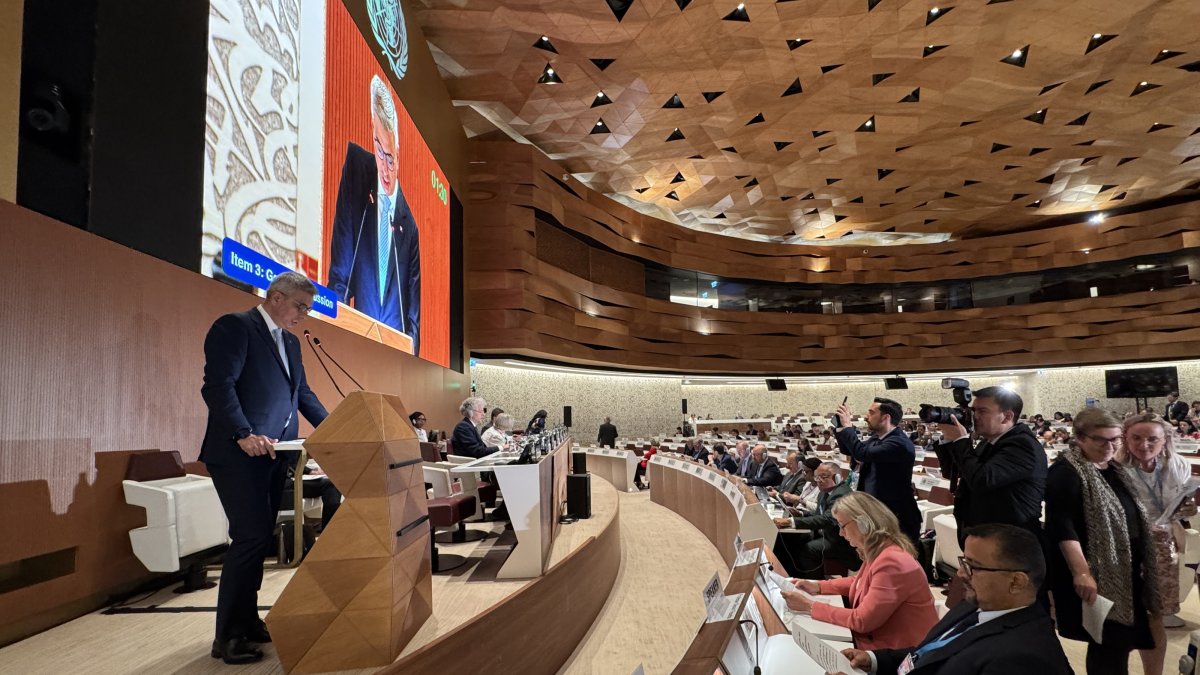
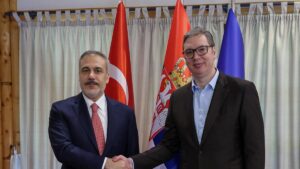


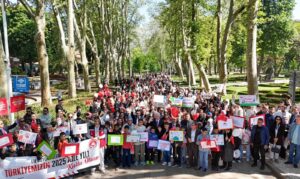



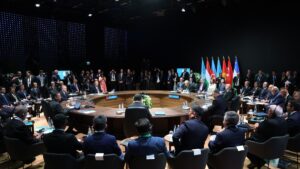

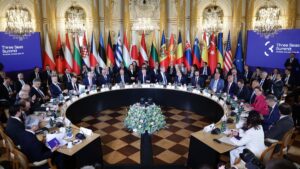
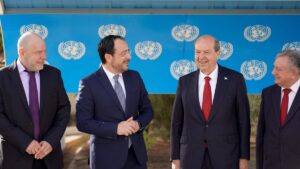
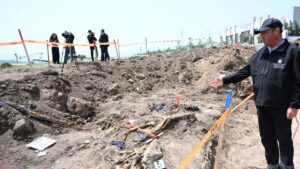
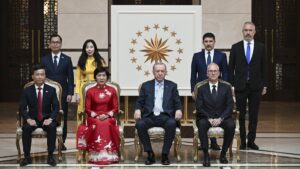
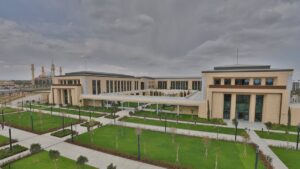


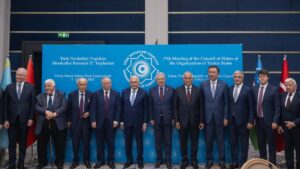





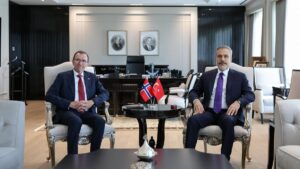
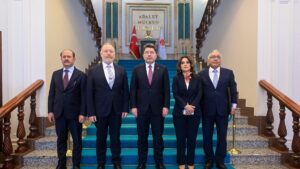





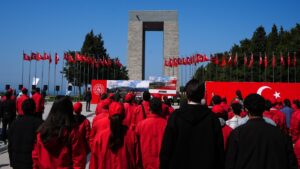



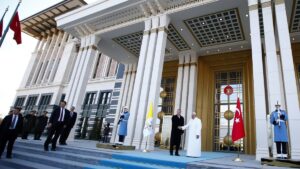

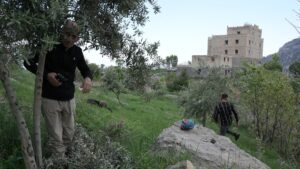


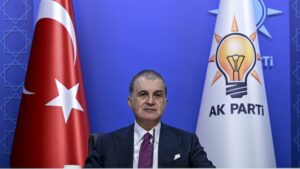



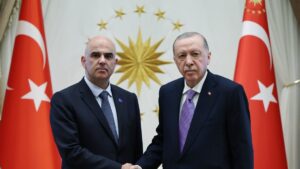

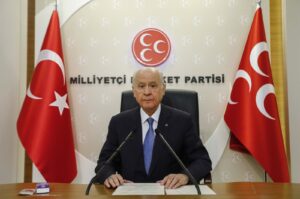
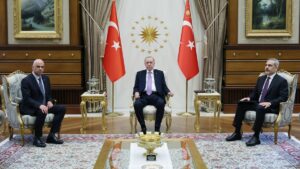



Be First to Comment